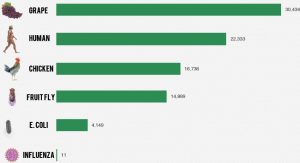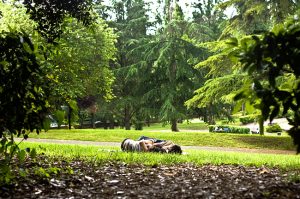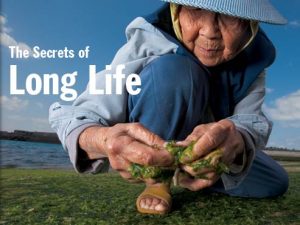 People who are hopeless, people who can’t see a future for themselves are more likely to throw their money on unproductive purchases, or YOLO…
People who are hopeless, people who can’t see a future for themselves are more likely to throw their money on unproductive purchases, or YOLO…
Ever since I’ve started to download the energy of the Days of Power, I’ve been wondering how I am going to know that it’s working… how it will manifest, practically, in my life.
Whenever something new comes in, my imagination goes to the known, the familiar, and I guess that is how the human mind works.
So I had no idea what may happen, what could happen, given the energy.
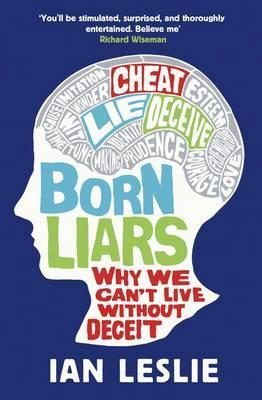 Obviously, what I am telling you is my story about what is happening… the mind is a confabulator… meaning: a story making machine. In plain words: a liar.
Obviously, what I am telling you is my story about what is happening… the mind is a confabulator… meaning: a story making machine. In plain words: a liar.
I am reading the book: Born Liars: Why We Can’t Live Without Deceit by Ian Leslie (7-Jun-2012) . I can only take so much “truth about lying” at a time, so I have been reading it for a day, and then I need a break from it… so I have read two other books since I started to read it. I could say it’s fascinating, but the truth is: it is disturbing. Very disturbing.
 Anyway, back to what is happening:
Anyway, back to what is happening:
My hosting company is having a sale, about 66% off, if you prepay for three years.
I decided to do it, but I needed a few hundred bucks more to be able to pay…
And then the s-h-i-t hit the fence… One after the other parts of my system gave up the ghost, died. Monitor, hard drive, other urgent purchases…
So I am thinking: is it possible that wanting to save now is giving up my seed capital, my emergency funds…
 What does it say about me? About my level of faith?
What does it say about me? About my level of faith?
On one hand, it’s blind faith. On the other it is lack of faith.
Blind faith because hoping that spending all my money on one thing can magically “save me”… Whatever that means…
I have seen other people spend their last few thousands of dollars in a desperate hope to turn around their lives…
On the other hand, it is no faith.
The difference is 129 dollars a month… I can pay that even if I have to tighten my belt and eat eggs and nothing more expensive for a month or two. I have done that, except with rice, beans and cow’s heart, for six months in 1988.
People who are hopeless, people who can’t see a future for themselves are more likely to throw their money on unproductive purchases, or YOLO…
I have lived most of my life in that space. Never seriously considering that I will live past how far I could see, one month or so.
All my actions were consistent with imminent death…
But something has changed. I am just noticing it.
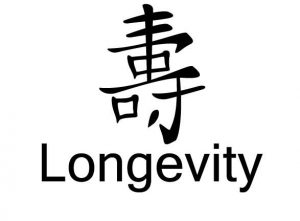 For the first time ever I am able to see further than a little bit… and I am able to see what actions NOW would support that further future, say YES to them, and what actions may not, and say NO to them.
For the first time ever I am able to see further than a little bit… and I am able to see what actions NOW would support that further future, say YES to them, and what actions may not, and say NO to them.
Wow.
I am attending to my health… so when I am really old, I can be well enough, think clearly enough so I can still do this work I was born to do.
In all my years I could never say this, because I didn’t want to live, or not really.
I have stopped hovering on the border of life and death… always closer to death than to life. I am like a bird that found its wing and took off.
It didn’t happen fast.
It really began with the 67 steps I started in February. Eight months ago.
It is really the prime method of trim tabbing… turning the ocean liner around in a tight bay. So it can leave the bay and roam the high seas it was designed to roam…
 The ships are made for high seas, not for the harbor… someone said that.
The ships are made for high seas, not for the harbor… someone said that.
Had I decided to spend the money for the three year plan would have meant having to stay in the harbor, because of lack of money to replace the computer parts… hah.
But the most important part is this sudden clarity… that, I think, would not have been possible without the infusion of the tremendous light of the Days of Power.
 I have a future. I’ve never had one.
I have a future. I’ve never had one.
I remember trying to visualize it, and I could not. You cannot visualize nothing.
There are women in my exercise class, in their 80s.
Better keep my money in my pocket.
Thank you Light.
PS: As I am looking for picture for this article, I see that people want longevity 1, will shell out a lot of money for longevity, believe a lot of lies for longevity.
But there is a difference between living long and living well.
One of my favorite jokes is this: A guy goes to the Rabbi for advice. “What should I do to live long?”
The Rabbi says: When you get up in the morning, have breakfast with your wife, kiss her, go to work. After work go home, and have dinner with your wife, go to sleep together. Do this every day.
Will that make me live long? asks the man.
I don’t know if you will live long, says the Rabbi. But I can guarantee it will FEEL long.
But this is the life people live… live for nothing, no life in their years… at least I don’t see that they do. Meaningless. Meaningless longevity.
What transformed my life is that, by miracle, I can see a future for myself… which made it worth for me to change my diet, and it makes it worth for me every day.
What happened first? The feeling better or seeing a future? I think they are synergistic. One cannot be without the other.
The same is true about money… enjoying work, enjoying being alive… and health, and future.
Synergistic.
What I like about the 67 step coaching is that it makes you examine every aspect of your life, your thinking, your rules, your ideas. Priceless.
I had the Light “coach me”… because without coaching, it is just 67 talks.
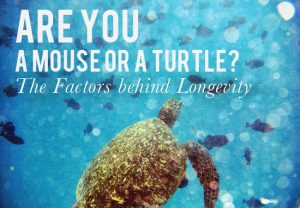
Are You a Mouse or a Turtle? The Factors behind Longevity
Reprinted from foursigmatic
Disclaimer: I fully acknowledge that science has so far figured out only a small percentage of the many factors that influence longevity. That’s why I didn’t bother linking sh*tloads of articles after some of my comments. As long as we know so little, individual studies give us very little hard evidence. Google (Scholar) will tell you more, if needed.
In mythology, people are often seeking various Holy Grails. In real life, people are seeking ways to stay young.
Some experts say that around 110 billion human beings have lived on this planet. None of them have, to my knowledge, avoided the grim reaper for more than 130 years. More than 150,000 people die every day. Every day a person on a plant-based diet dies. Every day many non-smokers will die. We all die, and we’re so afraid of the event that we try all sorts of things to avoid the fact and forestall the event. We try to pursue eternal youth.
In mythology, people are often seeking various Holy Grails. In real life, people are seeking ways to stay young. Hollywood actors and actresses are prime examples. Luckily – and this is not just fantasy – there are ways to become physiologically younger. Alas, there’s no way (so far) to become chronologically younger, but there is plenty of evidence demonstrating that numerous vitamins, minerals, fats, flavonoids, simple phenols, amino acids, glucosinolates, phytosterols, and enzymes can have a positive effect on the aging process.
I know some of you younger readers of the fast-food generation want to get to the how-to-slow-your-aging details right away, but work comes before pleasure – so first let’s look at what causes the body to age.
Aging’s effects on the body are very similar to the effects of stress, alcohol, and ultraviolet radiation. Each of these has been shown to damage about 15 different genes, and disrupt 10 different proteins essential to body functioning. Like viruses in a computer, they create “errors” in the genes’ and proteins’ structures and codes. All affect the body on just about every frontier, from the immune system to hormones, and from cell reproduction to the nervous system. We don’t know for sure the main driver of these effects, but luckily science has given us three main theories, which I’ll over-simplify below. I have a degree in chemistry, but I’ll avoid all the fancy chemical jargon bullshit. It’s not necessary – and besides, even I don’t fully understand what all the fancy words really mean.
Graph: Gene counts in a variety of species (Pertea and Salzberg Genome Biology)
1. Free radicals
There’s a thing called the free-radical theory of aging. It assumes that all organisms age because chemical compounds called free radicals damage the cells over time. Free radicals are a type of bloody aggressive atoms or molecules that destroy cell walls and disrupt DNA. They are like children who were never touched when they were small, and now hold a grudge toward everyone in the family for making them feel lonely. Luckily, our bodies produce antioxidants – the nice kids in the family, who keep the black sheep under control during Christmas dinners. As we grow older, though, antioxidant production slows down, and the black sheep free radicals begin taking over. With time, the body also cuts back on hormone and enzyme production, and white blood cell production slows way down, too. The white blood cells are there to fight against bacteria, viruses, and various toxins we’re exposed to by such things as environmental pollution.
2. Oxygen
The second theory is a sister to the first. Oxygen is the #1 substance we humans need. Its importance beats water’s by a mile, and food’s by a full lap. Now, the free radical theory also has an aspect of oxidative damage, but as we go along in life (following the typical modern lifestyle – and the modern diet in particular) we accumulate all kinds of garbage in our cells that prevents oxygen from being properly absorbed and used.
See, in theory, every creature’s lifespan can be figured with a simple formula. You can consume 800 calories for every gram of your adult body weight. By the time you reach your “allotment” of calories, your cells are so tired that you die. So I, as a 74-kg guy, can eat around 59 million calories. And no, it doesn’t help if you are obese. You will not live longer because you’re too fat! By the way, all this reminds me of the new Justin Timberlake movie, In Time.
There are many animal studies that indicate that the less we eat, the longer we live.
Now, if you look at different animals, you will note that those that tend to eat more in proportion to their weight also tend to die younger. A mouse eats all the time, and also dies quickly. A turtle eats little (and slowly) but also lives to a very old age.
You see, a faster metabolism creates more waste products, and these cause irreparable damage. There are many animal studies that indicate that the less we eat, the longer we live. And the less you eat, the less hungry you will feel (after a period of adaptation) because your body will digest food more efficiently. Also, eating what Brendan Brazier calls high net-gain foods will help. This means foods that digest more easily, allowing more of their calories to be utilized for energy. If you get your calories through poorly digestible red meat and starch, you might be spending the majority of your calories just in the digestion process.
3. Telomerase
The third theory is the newest, and therefore I guess the most controversial in scientific circles. Anyway, we do know plenty about the process called cell division, where a “mother cell” splits into two or more “daughter cells.” Now, each time this happens – every time a cell splits – our supply of a particular enzyme at the ends of the cells’ chromosomes is reduced. The enzyme is called telomerase (aka “Mr. T”) and without it, cell division can’t occur. In theory, the body has enough telomerase to last a good 150-200 years. However, due to our lifestyle (and here once again is a link to those nasty free radicals) our supply of Mr. T disappears much sooner than that.
Final note on theories
Recent studies also indicate that there are about ten genes in our chromosomes that are closely connected with longevity. So things are not as black-and-white simple as the Mr. T theory would suggest. Another big factor is stress. In animal studies, it’s been noted that if a species has a great number of natural enemies, members of that species tend to die younger (and not just because they get eaten). Also, reproduction rate varies depending on the amount of stress in an animal’s environment. The more stress, the more babies they will create at one go. Less stress means a lower birth rate and a longer life. Think about salmon – they are so super-stressed in the process of swimming upstream to spawn that by the time they’ve accomplished their goal, they’ve also lost all their energy, and they die.
Happy people have less negative stress and they also seem to live longer.
This stress factor may also explain (at least partially) why human longevity has been improving over the past 60 years, even though the general quality of our diets has been significantly decreasing. We have very little physical stress these days, compared to what our ancestors faced. We may think we’re stressed, but we really aren’t, by comparison. Even if you’re stuck for hours in a traffic jam, that stress isn’t comparable with, let’s say, living in a concentration camp. Stress is the effect of excess efforts, whether in the form of physical exertion, or dietary or mental challenges. Since people in the modern, developed world don’t have to worry constantly about their most primal needs (food, safety, shelter) they generally live longer – even if they don’t always achieve self-actualization at work. Further, happy people have less negative stress and they also seem to live longer. Thus, laughing makes you age more slowly.
Tips on how to live longer
So how can you slow down aging? Our theoretical maximum age is around 150 years, but we don’t even come close to reaching that. Well, there’s no cookie-cutter solution, since people live different types of lives. Also, our current body age determines the appropriate solutions, to some extent. For example, as we get older, our need for calcium and protein grows – especially in females. Increased fiber intake is also important as we age. Luckily there are a few BIG ideas that apply to all of us. The TOP 6 are listed below.
1. Drink water
As we age, we tend to physically (and, IMHO, also mentally) dry up. At birth, a baby’s body is about 78% water. Now you know why baby skin is so special! After just one year, that number is already down to 65%. Adult males average around 60%, but since fat tissue does not contain as much water as lean tissue, the number varies a bit. Females are dryer than males. No hate here, just a fact. :)
2. Get antioxidants from whole foods
As I mentioned before, with age our bodies create less and less protection against free radicals. So berries and veggies become super important as we’re growing older. For example, by eating sea-buckthorn, one can get tons of the enzyme superoxide dismutase (SOD), one of the most powerful antioxidants. SOD fights against the king of free radicals – superoxide. You can’t create synthetic SOD, and it is destroyed when heated. Since it can’t be synthesized, it is quite un-famous: drug companies can’t really profit from it, so they don’t mention or promote it.
3. Lose weight with sports
Lack of activity in your life will negatively affect your hormone balance, decrease your number of insulin receptors, and make your heart weaker. Sports will help you utilize sugars as an energy source, decreasing the body’s need to excrete insulin. Insulin is not a bad thing in itself, but it does cause excess energy to be stored as fats. It can also prevent our muscle/blood sugar (glucose) from being used for energy. In short, take part in sports and your body will be a smarter energy consumer. And with lower weight, you will consume fewer calories, which helps you live longer.
4. Take care of your digestive tract
The condition of the digestive tract is one of the most under-appreciated and under-emphasized factors in almost any diet. It is still the place where nutrients pass into the bloodstream. It doesn’t matter what hyper-super-über-foods we eat, if they aren’t digested well and efficiently. For this reason, things that assist and support the digestive tract, like sour cabbage (sauerkraut), kefir, garlic, and green tea are a pretty good insurance policy.
5. Eat nutrient-dense foods
Old-school diets focus on optimizing macronutrients. The newer schools of thought are all about micronutrients. By eating nutrient-dense foods – like all real superfoods – you will have an abundant supply of vitamins and minerals that will support longevity. Beta-carotene and vitamins E & C are the most famous longevity foods, but they are certainly not the only two. Selenium also rocks in this department; three to four Brazil nuts a day should do the trick. Also, chromium and copper support the immune system. Besides berries, we can also get these from all types of onions, and from olive oil, small cold-water fishes, red wine, raw cacao, honey, and various cabbages.
6. Live a happy life
Forget the 21st-century “don’t happy, be worry” mentality. Relax! Breathe deeply. Live a slow life and eat slow foods. Smile, love, and be grateful. Don’t stress about things you can’t influence – let them slide. And for things you can influence, stop worrying and start doing something about them. Things will all play out somehow. They always do!
I could go on for (literally) ages on all these points, but I guess this blog post has now reached its limit. I hope you’ve found it at least somewhat useful. I would love to hear from you in the comments section, or on our Facebook page, especially if you have any questions. Let’s talk more about all this!
Wishing you a long life,

